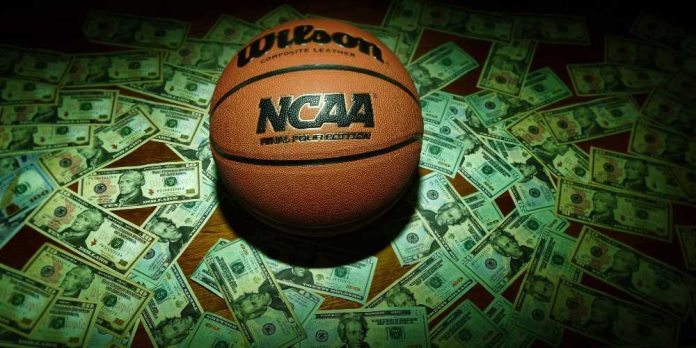On the same day ESPN’s Adam Schefter warned that more suspensions are coming this week for NFL players, the NCAA has released its updated rules around how to handle student-athletes who violate the new sports betting policy.
Previously the rules were hard and fast that any NCAA athlete who bet on sports lost a full year of eligibility in their sport. The new rules, which are active dating back to May 2, allow for some leeway. Here they are in full:
- “Student-athletes who engage in activities to influence the outcomes of their own games or knowingly provide information to individuals involved in sports betting activities will potentially face permanent loss of collegiate eligibility in all sports. This would also apply to student-athletes who wager on their own games or on other sports at their own schools.
- If a student-athlete wagers on their own sport at another school, education on sports wagering rules and prevention will be required as a condition of reinstatement, and the loss of 50% of one season of eligibility will be considered.
- For all other wagering-related violations (e.g., wagering on professional sports), cumulative dollar value of the wagers will be taken into consideration with the following terms for reinstatement:
- $200 or less: Sports wagering rules and prevention education.
- $201-$500: Loss of 10% of a season of eligibility, plus rules and prevention education.
- $501-$800: Loss of 20% of a season of eligibility, plus rules and prevention education.
- Greater than $800: Loss of 30% of a season of eligibility, plus rules and prevention education.
For cumulative wagering activities that greatly exceed $800, NCAA reinstatement staff are directed to consider whether additional loss of eligibility, including permanent ineligibility, are appropriate.”
Unlike the pro leagues, which prohibit betting on league activity (or, in the case of MLB, on any form of baseball), NCAA student-athletes are prohibited from wagering on sports at all.
“These new guidelines modernize penalties for college athletes at a time when sports wagering has been legalized in dozens of states and is easily accessible nationwide with online betting platforms,” said Alex Ricker-Gilbert, athletics director at Jacksonville and chair of the DI Legislative Committee. “While sports wagering by college athletes is still a concern — particularly as we remain committed to preserving the integrity of competition in college sports — consideration of mitigating factors is appropriate as staff prescribe penalties for young people who have made mistakes in this space.”
The new rules are in response to the growing ubiquity of sports betting in the US. With only a few states holding out from legalizing some form of sports betting, the NCAA built in some room to assess violations in a less stringent way.
Recently in Iowa, a number of athletes from both Iowa State and Iowa were under investigation for violating the betting policy. There are no official details yet on exactly which athletes were involved and what they were betting on, but as many as 50 athletes are said to be involved.
Under the new rules (if the violations were done after May 2), impacted athletes might only sit out a few games. By contrast, Alan Tisdale of Virginia Tech missed the first six games of last football season for wagering a combined $400 on the NBA postseason and winning $41. Originally, the NCAA said he would be suspended nine games before it was reduced to six on appeal.













